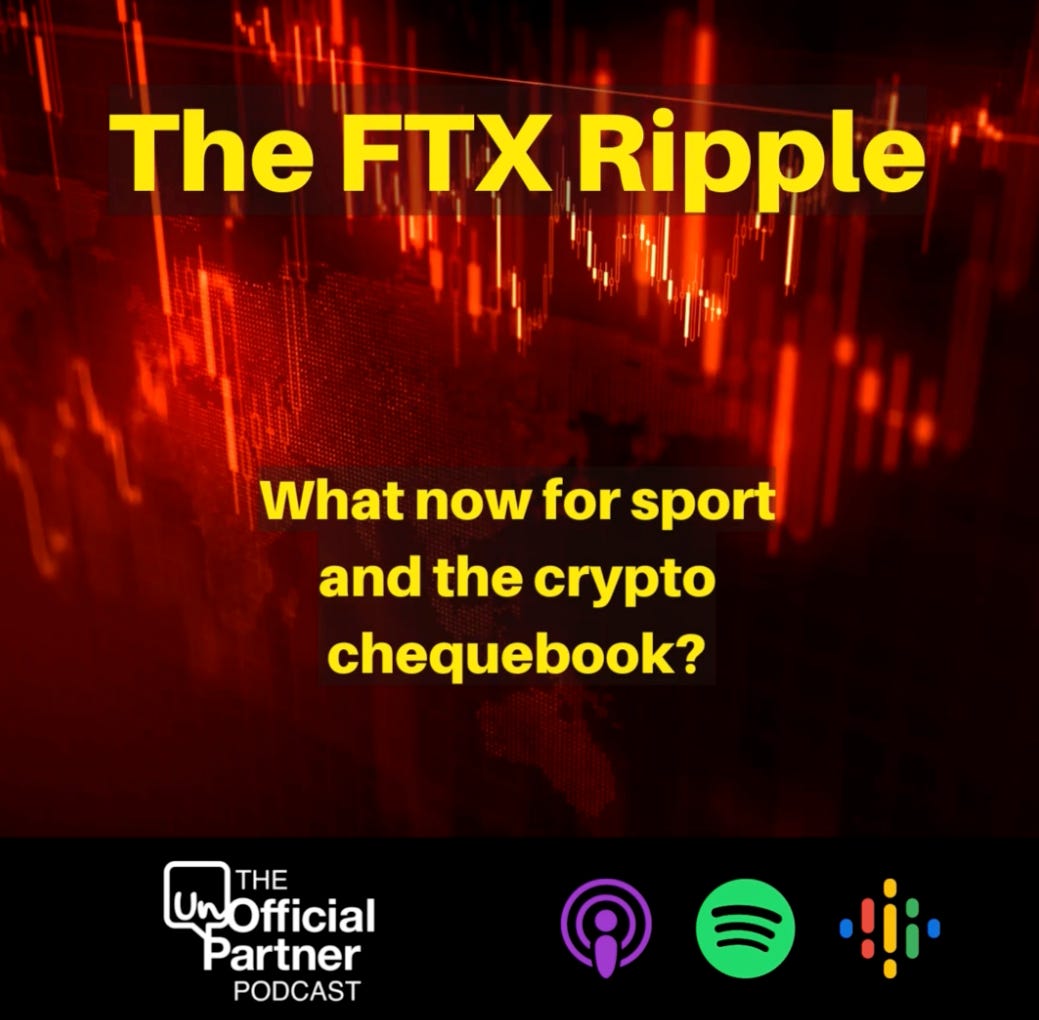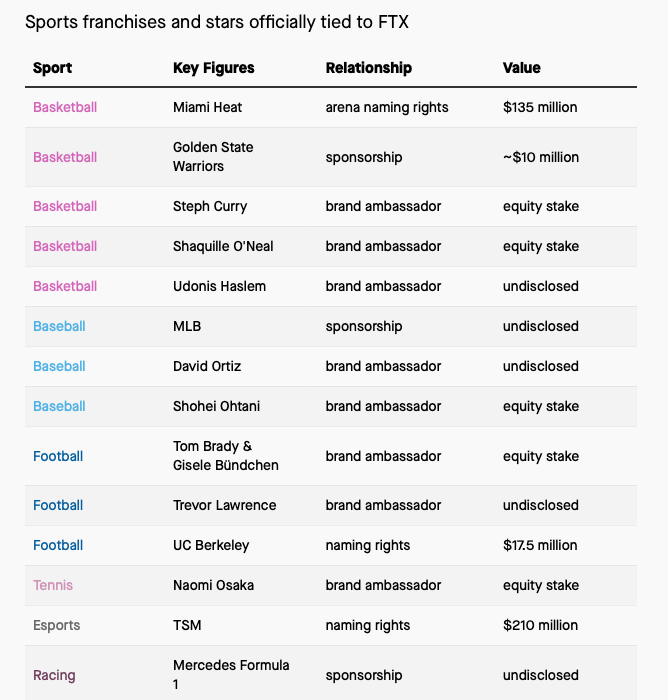FTX, the second biggest cryptocurrency exchange filed for bankruptcy in the US, and the company's founder Sam Bankman-Fried, previously referred to as the King of Crypto, stepped down as chief executive.
In the filing, FTX estimated that it had between $10bn and $50bn in assets and liabilities and more than 100,000 creditors, including some of the biggest names in sport, from the Miami Heat to Tom Brady, Mercedes Formula One team and the MLB.
The FTX brand has become a familiar presence over the past two years, signing a series of high value sport sponsorships.
Quartz lists them here:
See also, the brand activations:
See also, the Esports exposure.
So what happens now?
Both to the money promised and not yet delivered but also to the sports economy more widely, as its relationship with crypto and associated categories comes under intense scrutiny.
What are the conversations taking place today throughout the commercial offices of Premier League football clubs, Formula One teams and other major sports rights holders.
To pick this apart we have three people with extensive experience of the commercial reality of the sponsorship marketplace.
Nathan Homer is chief commercial officer at Queen Elizabeth Olympic Park and formerly held senior global roles at the European Tour golf, Barclays and Proctor and Gamble.
Gary Linke is one of the busiest and most experienced brokers of sponsorship deals working today, having held senior commercial roles at Football League and Rugby Football League, the RFL.
Ben Wells is chief commercial office of PTI Digital, and formerly head of marketing at Chelsea Football Club and commercial director at Reading FC and Bath Rugby Union Club.




